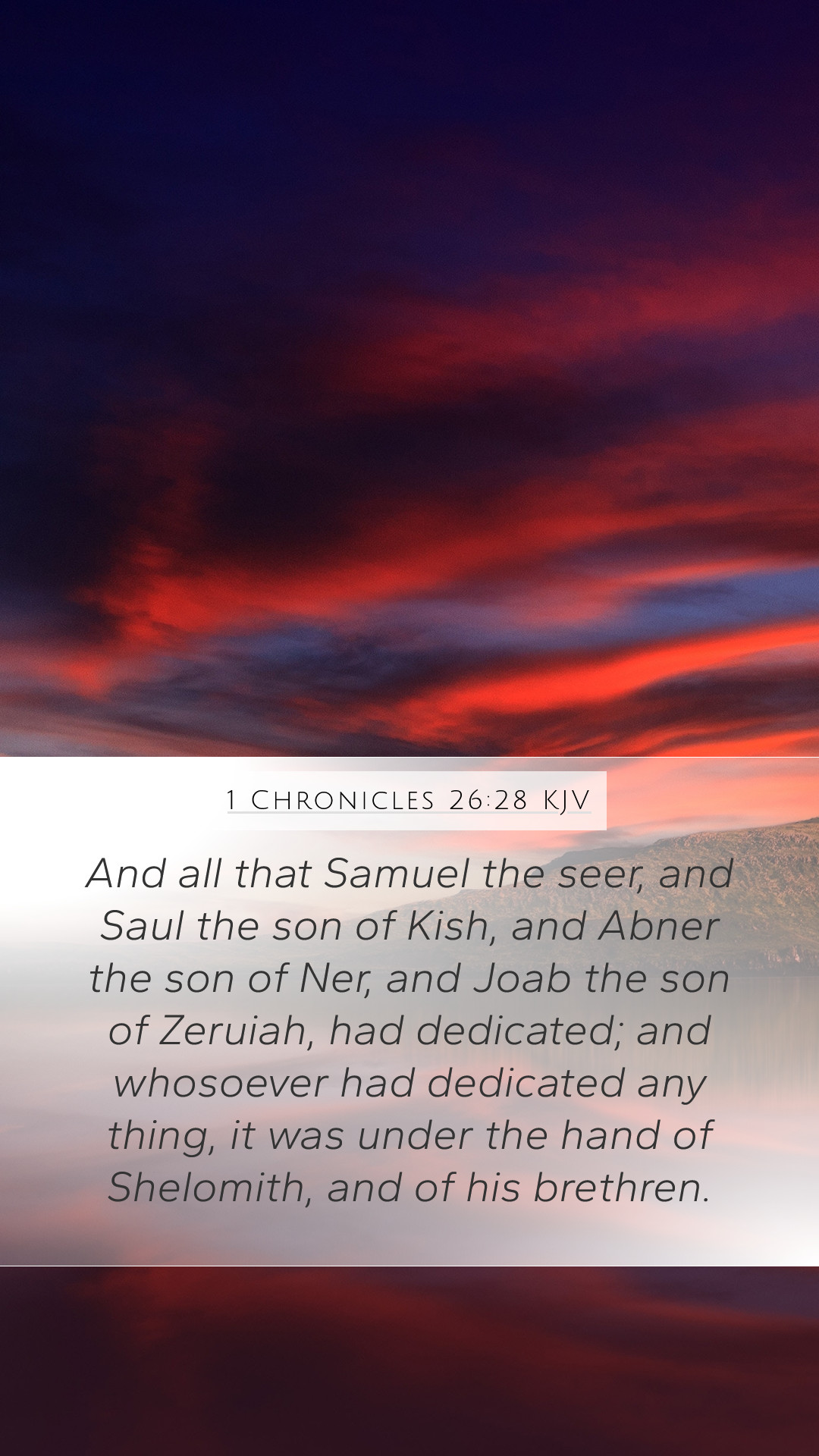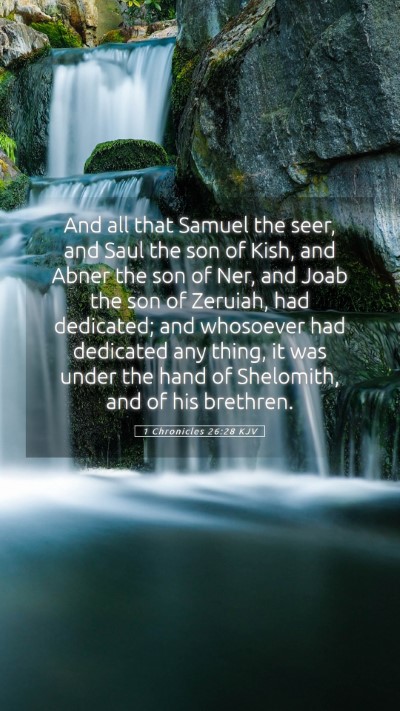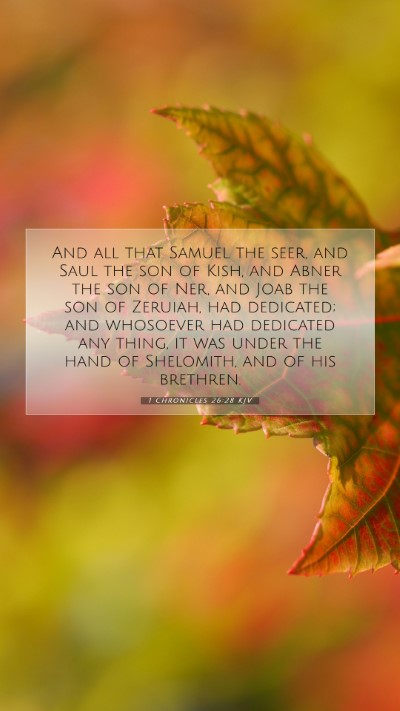Understanding 1 Chronicles 26:28
Bible Verse: 1 Chronicles 26:28
This verse reads: "And all that Samuel the seer had appointed, and of the fathers of the mighty men of David, were under the hand of their sons." This scripture draws attention to the organization and delegation within the service of the temple and the leadership established during David's reign.
Bible Verse Meanings
The meaning of this Bible verse speaks to the lineage of service in the temple and highlights the importance of generational responsibility. It reflects on how the leadership and duties initially established by great figures, such as Samuel the seer, continued under the authority of their descendants.
Bible Verse Interpretations
- Matthew Henry Commentary: Matthew Henry emphasizes the careful organization of the temple service and how it reflects God's order. He notes that the roles assigned were not just duties but part of a divine plan.
- Albert Barnes Commentary: Barnes highlights the significance of the line of service from Samuel to David's mighty men, showcasing the continuity of leadership in spiritual matters and its impact on worship practices.
- Adam Clarke Commentary: Clarke expands on the implications of having such a structured approach to ministry. He points out that the appointments of Samuel were instrumental in laying the foundation for the worship that followed under King David.
Biblical Exegesis and Context
This scripture is located in the context of 1 Chronicles, which primarily focuses on the lineage, leadership, and reign of King David, as well as the organization of worship and temple duties. The historical setting reflects post-exilic concerns with proper worship and the restoration of the temple order.
Significance of Generational Leadership
This verse illustrates the concept of passing down responsibilities and spiritual heritage through family lines. Such an approach ensures that knowledge, skills, and devotion to God are transmitted to future generations, reinforcing the idea that the worship of God is a communal endeavor that spans across time.
Application of 1 Chronicles 26:28 to Life
This scripture invites readers to consider how they pass on their faith and responsibilities to the next generation. It serves as a reminder that spiritual leadership is foundational in establishing a community’s worship and practice. Here are several applications:
- Encourage participation in church activities among family members.
- Actively mentor younger generations in their faith journey.
- Recognize the importance of continuity in spiritual teachings from forebears.
Related Bible Cross References
- 1 Samuel 16:13: Anointing of David by Samuel, illustrating the importance of prophet and king in Israel’s leadership.
- 1 Chronicles 23:1-2: Transition of leadership and organization of the Levites as David approached the end of his reign.
- 2 Timothy 2:2: Paul’s instruction on passing down teachings to faithful individuals, echoing the sentiment of generational responsibility.
Bible Study Insights and Resources
This verse offers rich opportunities for Bible study topics, particularly in understanding Scripture related to leadership, generational faith, and temple worship. This can lead to in-depth Bible verse analysis and discussions in Bible study groups or online Bible study platforms.
Utilizing Bible Study Tools
For a comprehensive study, utilize Bible study tools such as commentaries, lexicons, and historical context resources to deepen your understanding. Exploring the interrelated themes in the Bible can enhance your interpretation and application of various scriptures.
Conclusion
In summary, 1 Chronicles 26:28 is a powerful reminder of the importance of orderly worship and the role of legacy in our spiritual lives. By studying this verse with the insights provided by public domain commentaries, individuals are better equipped to understand and apply its teachings in their own lives and communities.


